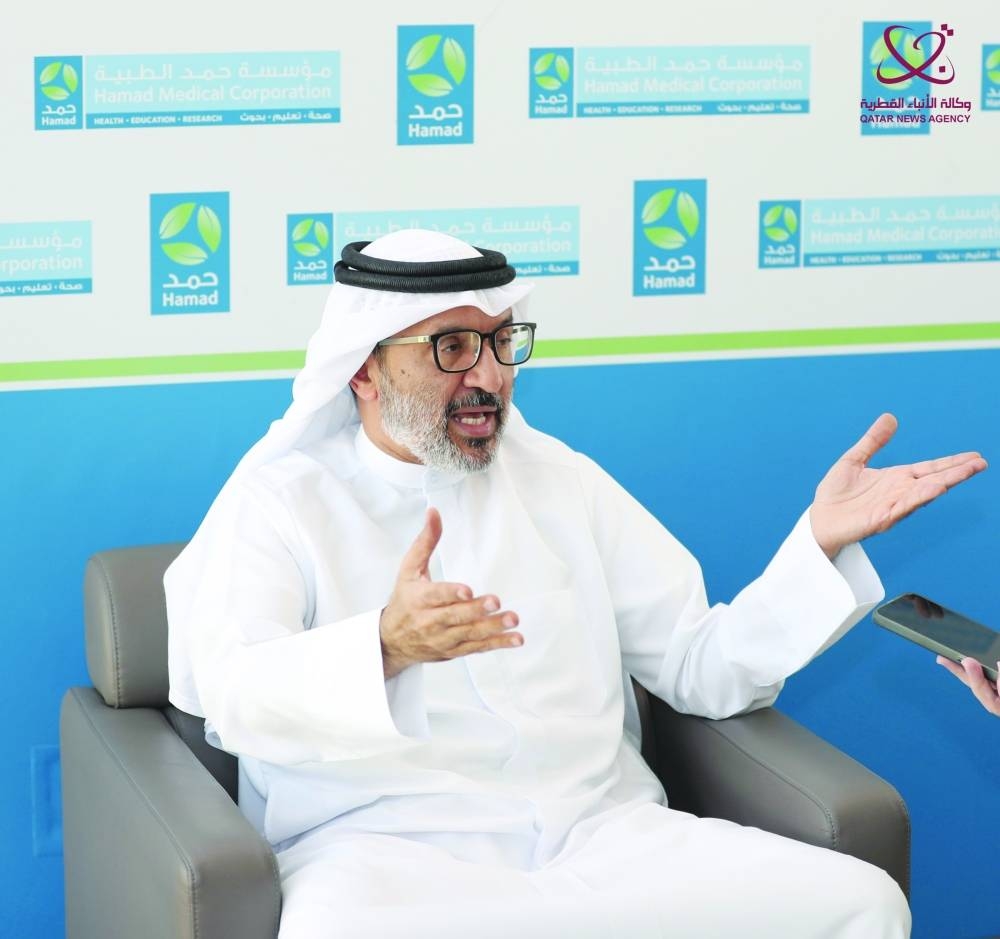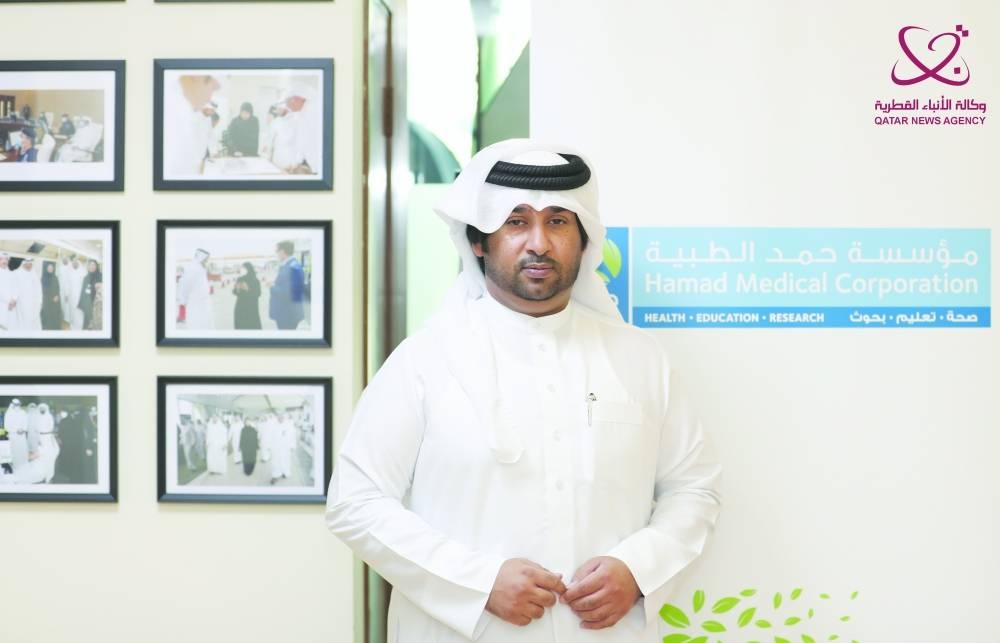The Official Healthcare Spokesperson for the FIFA World Cup Qatar 2022, Dr Yousef al-Maslamani, has said that the medical plan to provide services during the international tournament has been very successful so far, with the health sector being able to manage the increasing demand for healthcare, and the daily routine services provided to citizens and residents not affected.
In a statement to the Qatar News Agency (QNA), Dr al-Maslamani attributed this success in accommodating the growing demand for health services, provided for fans, citizens, and residents to advance planning and to good tournament organisation.
He also said the great experience gained by the health sector in managing medical services during major events, such as the Qatar 2015 24th Men's Handball World Championship, the FIFA Club World Cup Qatar 2019, the World Athletics Championship Doha 2019 all the way to the FIFA Arab Cup Qatar 2021, contributed to the success.
Dr al-Maslamani said that the health sector's infrastructure underwent great development in the last decade, with the construction of about 10 new hospitals and 16 health centres.
He added that the health sector has allocated 100 new clinics around the eight World Cup stadiums, as well as in the fan zones and in the areas where fans reside.
Dr al-Maslamani stressed that the strategy followed by the health sector in Qatar in providing health services during the World Cup offered everyone access to medical service as soon as possible, without the fans' need to travel long distances or go to hospitals to seek treatment.
Even in cases when heading to a hospital was needed, ambulances were ready and available.
Dr al-Maslamani pointed out that the allocation of the four hospitals – Aisha Bint Hamad Al Attiyah Hospital (AAH), Al Wakra Hospital, Hamad General Hospital, and Hazm Mebaireek General Hospital – to serve World Cup fans also contributed to providing high-quality medical and health services to fans without affecting the usual services to citizens and residents.
He explained that the 100 medical clinics designated for the World Cup receive an average of 1,000 people per day suffering from simple and moderate conditions, such as colds, headaches, or coughs, with 35 of them being transferred to hospitals to receive treatment right away, and only about 1-2 people needing to be admitted for observation, which is a normal and appropriate rate in such large events.
Dr al-Maslamani also pointed out that the ambulance service continues to play a major role during the World Cup, given that all World Cup stadiums are equipped with ambulances on site, in addition to fan zones and in the various regions of the country.
Ambulance service arrival time has maintained its pre-tournament record, which is eight minutes after receiving the service request on the number 999.
Dr al-Maslamani explained that roving paramedics were provided among the crowds in event areas, in addition to other emergency services, including paramedics equipped with Mechanical Cardiopulmonary Resuscitation (mCPR) devices, and other first aid requirements.
He stated that all medical services in Qatar, including those of the Ministry of Interior and the Ministry of Defence, as well as QatarEnergy, in addition to Hamad Medical Corp and the Primary Health Care Corporation, all contributed to the success of the medical and healthcare strategy during the tournament, together with the additional medical and paramedical cadres that were employed to meet the increasing need for health services, joining the doctors, nurses, technicians and paramedics, who work in the health sector in Qatar.
FIFA World Cup Qatar 2022 ambulance service operations manager Saleh al-Mejareh al-Marri meanwhile said that the health sector's strategy during the tournament focuses on providing medical care close to the people, which means providing health services in almost all fan sites.
He said that during the World Cup, a wide range of medical services are provided in every World Cup stadium on match days.
This includes up to 13 medical clinics spread around each stadium, as well as medical teams and ambulances designated for footballers, and emergency services that include 31 mobile medical teams, and eight ambulances per stadium.
Al-Marri stated that the health sector provided more than 2,200 medical personnel working in multiple areas and events during the World Cup.
He stressed that emergency and urgent care is provided free of charge to all Hayya card holders, whilst the cost of non-urgent services is charged at the regular fees rate.
Ali al-Khater, the chairman of the supreme healthcare communication committee at the Ministry of Public Health and the communication officer between the health sector and the Supreme Committee for Delivery & Legacy (SC), said that during the World Cup, healthcare teams from various health sector facilities are working together to provide a wide range of medical support services and have already succeeded in accommodating the growing demand for healthcare, thanks to the significant expansion the health sector in Qatar underwent in recent years.
He added that the most important pillar in the tournament's healthcare strategy is to enable easy access to healthcare, thus, anyone can call 999 to request an ambulance, where they will receive prompt medical care, and will be transferred to the appropriate medical emergency department.
Al-Khater pointed out that the allocation of 100 medical clinics all around the country, be it in football stadiums, fan zones or main residential areas, contributed to ensuring medical support for fans and obtaining appropriate medical services.

Dr Yousef al-Maslamani

Saleh al-Mejareh al-Marri
